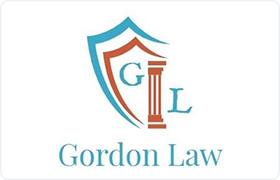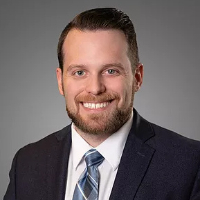 Stanley White Collar Crime Lawyers, North Carolina
Stanley White Collar Crime Lawyers, North Carolina
Sponsored Law Firm
-
 x
x

Click For More Info:
-
The Law Offices of Andrew L. Gordon, PLLC.
725 E. Trade Street Suite 205 Charlotte, NC 28202» view mapCriminal Defense Law Fighting For Your Rights
Everyone knows that the law is not a simple topic. But when you meet with a Gordon Law attorney, the confusion will clear up before you know it.
800-941-2360
Sponsored Lawyers
1-3 of 3 matches
Criminal, DUI-DWI, Misdemeanor, Felony, White Collar Crime
Since 1998, Samuel J. Randall, IV has built a solid reputation among his peers, adversaries, and the judiciary in North Carolina as an aggressive and skilled criminal defense lawyer and advocate for his clients. Mr. Randall has represented hundreds of clients in criminal defense matters in the Federal and State courts of North Carolina. Mr. Randall’s clients have been accused of every crime in the book, ranging from the most serious of matters, such as First Degree Murder and Drug Trafficking to lesser charges such as Shoplifting, Possession and Traffic Violations. Mr. Randall handles criminal matters in State and Federal Courts throughout North Carolina. His commitment to representing individuals charged by the State and Federal government led Mr. Randall to become a Board Certified Specialist in both State and Federal Criminal Law by the North Carolina State bar in 2004. He was recertified in 2010. Currently there are over 28,000 licensed attorneys in North Carolina but only 53 are Specialists in both State and Federal Criminal law. Mr. Randall grew up in Charlotte, North Carolina. He attended Quail Hollow Junior High school and South Mecklenburg High School. In 1987, Mr. Randall joined the United States Navy and served as a Hospital Corpsman until he was Honorably Discharged in 1991. During his time in the Navy, Mr. Randall became qualified as an Aircrew member and performed Search and Rescue missions as an in-flight medical technician. He is a Gulf War Veteran having served with HMM-226 during operation Desert Storm where he provided inflight medical assistance to wounded troops. After the Navy Mr. Randall attended the University of North Carolina at Wilmington where he received his Bachelor of Arts degree in Philosophy and Religion. Mr. Randall received his law degree from California Western School of Law in San Diego California. In 2012, Mr. Randall graduated from the Gerry Spence Trial Lawyers College in Wyoming and in 2013 graduated from both Graduate programs offered by the Trial Lawyers College. Mr. Randall has been able to use his experience and knowledge of criminal law and procedure to gain a dismissal or reduction of the charges against his clients, to negotiate a favorable outcome for the client, or to win an acquittal after a trial of the charges. Most importantly, Samuel J. Randall, IV knows that to his clients and their families, all criminal charges are serious matters. Every case and every client deserves an attorney who will do everything possible to gain a dismissal, reduction or acquittal of the charges, if at all possible. Mr. Randall and his staff are committed to doing just that for you. For more than 15 years, Mr. Randall has been providing a broad range of high-quality legal services to a wide range of clients, including both businesses and individuals. Mr. Randall understands that if you are accused of committing a crime, your freedom, your family, your reputation and your job may be at stake. Don’t hire an attorney based solely upon their advertisements. With so much at stake, be certain of your attorney’s competence, reputation and experience as a criminal defense attorney. If you or a loved one have been arrested and charged with a crime in North Carolina or have learned that you may be the subject or target of a state or federal criminal investigation, the most important decision you can make is deciding who will represent you in fighting against these charges or in putting a halt to the investigation. Being accused of a crime is a serious matter. Having a criminal conviction on one’s record can have long-standing and devastating consequences for you and your family. The criminal defense attorney that you or your family should turn to should be one who possesses the highest level of professional skills, who has for years successfully represented people accused of wrongdoing, and who can assure you and your family that you will receive the kind of personalized attention and care that you deserve under this most trying of circumstances. And, of course, the lawyer should be willing to work with you to pay for his services.
(more)


 Andrew Gordon Charlotte, NC
Andrew Gordon Charlotte, NC Practice AreasExpertise
Practice AreasExpertise


